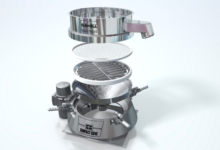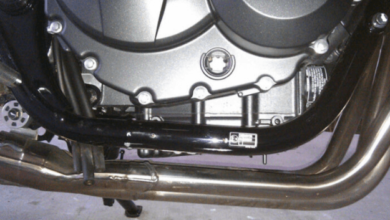Avoiding Lemons: Tips for Inspecting Vehicles Before Purchase

When purchasing a vehicle, new or used, it is crucial to conduct a thorough inspection to avoid buying a lemon. A lemon is a vehicle with a significant defect that affects its use, value, or safety and cannot be fixed after several attempts. While the California Lemon Law provides protection to consumers who purchase lemon vehicles, it is always best to avoid buying one.
However, if you end up with a lemon despite your best efforts, it is critical to seek the assistance of an award-winning Anaheim Lemon Law attorney who specializes in lemon law cases. They will help you protect your rights and obtain the compensation you deserve.
Research the Vehicle’s History
Before physically inspecting a vehicle, it’s important to research its history to uncover any potential red flags. Obtain a vehicle history report from a reputable provider, such as Carfax or AutoCheck, which can reveal important information about the vehicle’s past. This information may include accidents or damage, prior owners, maintenance records, odometer readings, and lemon law buybacks or manufacturer repurchases.
Reviewing the vehicle’s history can help you identify any issues that may not be immediately apparent during a physical inspection and can provide valuable context for assessing the vehicle’s overall condition and value.
Check for Signs of Accident Damage
When inspecting a vehicle, it is extremely important to look for any signs of previous collision damage, as it may indicate underlying structural or mechanical issues. Some of the warning signs that should be noted are body panels that are not aligned properly, gaps between panels, paint overspray on tires, trim, or rubber seals, inconsistent paint color or texture, welding marks, or recent undercoating on the frame, cracks in the windshield or windows, and deployed airbags or evidence of airbag replacement.
In case you have any suspicion that a car has been in an accident, it is recommended that you have it examined by a qualified mechanic to determine the extent of the damage and identify any potential safety concerns.
Inspect the Tires and Suspension
The tires and suspension of a vehicle can give you valuable insights into its overall health and maintenance history. When inspecting the tires, look for any uneven wear, which might indicate alignment or suspension issues. You should also check for cracks, bulges, or bald spots, as they can compromise safety. Moreover, mismatched tire brands or sizes can negatively impact handling and stability.
To check the suspension, push down on each corner of the vehicle, and observe how it rebounds. If it bounces more than once or feels spongy, it may indicate worn shocks or struts. Additionally, you should check for any leaks or signs of damage to the suspension components.
Test the Electrical and Electronic Systems
Modern vehicles are highly dependent on their electrical and electronic systems, which are responsible for numerous features and functions. Any issues with these components can lead to expensive repairs, which is why it is crucial to inspect all the electrical and electronic systems when examining a vehicle. This includes testing the lights, turn signals, windshield wipers, washers, power windows, locks, mirrors, audio and navigation systems, climate control, heated seats, backup camera, and sensors.
Testing these systems will help identify any problems or potential issues, allowing for timely repairs and preventing more significant problems down the line. Therefore, when inspecting a vehicle, it is essential to test all the electrical and electronic systems thoroughly to ensure they are functioning correctly, and the vehicle is safe to drive.
Examine the Engine and Transmission
The engine and transmission are the most crucial components of any vehicle. Any issues with these parts can be quite expensive to fix. When inspecting a vehicle, it is crucial to check the engine and transmission for any leaks or stains on the engine block, hoses, or radiator. This could indicate a problem with the gaskets, seals, or other components. It is also important to examine the oil and transmission fluid levels and their condition. Low or dirty fluids can cause significant engine and transmission damage. Therefore, it is recommended to have a mechanic perform a diagnostic test to identify any potential issues.
In addition to checking for leaks and stains, it is essential to listen for any unusual noises coming from the engine and transmission. Knocking, ticking, or grinding sounds could indicate significant issues with the internal engine components. Rough idling or hesitation when accelerating and slipping or jerking when shifting gears are also signs of potential problems with the transmission. Furthermore, watch out for burning smells or smoke from the exhaust. This could be an indication of engine overheating or other issues. Therefore, it is crucial to perform a thorough inspection of the engine and transmission before purchasing a used car.
Read also Unlocking Online Success: How To Choose The Perfect SEO Agency
Have the Vehicle Inspected by a Professional
When considering the purchase of a vehicle, a crucial step in the process is to secure a professional inspection. Here’s a breakdown of why and how to effectively utilize professional inspections in your vehicle purchasing process:
- Engage a Professional Mechanic: Opt for a mechanic with ASE certification to ensure a high standard of inspection.
- Experience Matters: Choose someone experienced with the make and model of the vehicle you’re considering to ensure a thorough and knowledgeable inspection.
- Seek Recommendations: Look for mechanics who come highly recommended by other customers, indicating reliability and trustworthiness.
- Written Reports: Insist on a written inspection report, which can be invaluable for negotiating the purchase price or deciding against the purchase based on discovered issues.
- Negotiation Leverage: Use the insights from the inspection report to negotiate a better deal or to make an informed decision about proceeding with the purchase.
- Peace of Mind: Ultimately, a professional inspection aims to provide you with the assurance that you’re making a wise investment in a vehicle that meets your expectations and needs.
Diligence in Vehicle Purchasing: A Path to Avoiding Lemons
Purchasing a vehicle is a significant financial commitment that requires a thorough pre-purchase examination to avoid acquiring a faulty vehicle. It involves conducting comprehensive research on the vehicle’s history, carefully inspecting it for signs of previous accidents, checking the condition of the tires and suspension, assessing the electrical and electronic systems, inspecting the engine and transmission, and enlisting a professional mechanic for an unbiased inspection. By adopting this diligent approach, the likelihood of purchasing a problematic vehicle is significantly reduced, ensuring that buyers invest in quality and reliability.
However, despite taking these precautions, the risk of encountering a faulty vehicle still exists. In such cases, the expertise of a Lemon Law attorney can prove invaluable. These specialized legal professionals are skilled in Lemon Law and can provide indispensable guidance through the intricacies of legal claims, ensuring that your rights are vigorously defended. According to California’s Lemon Law, they stand as essential allies in securing the justice and compensation warranted by your situation.
It is important to remember that a proactive and informed approach during the purchasing process can not only minimize the chances of future complications but also equip you with the knowledge and resources to address issues should they arise, ultimately saving you time, money, and eliminating potential stress.





